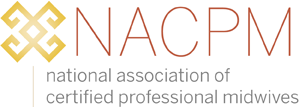Expansion of TRICARE Coverage
NACPM advocates for the Defense Health Authority to expand TRICARE’s midwifery care coverage to include CPMs and CMs. This would align with state-level recognition and standards, offering beneficiaries a broader choice of providers and aligning TRICARE with national trends towards improved maternal health outcomes.
An integrated midwifery system within TRICARE can yield numerous benefits. These include higher patient satisfaction, fewer cesarean sections, lower preterm birth rates, increased breastfeeding rates, and less invasive birthing experiences. Crucially, it could significantly reduce maternal and neonatal deaths, ensuring better health outcomes and quality of care for military families.
Our goal is to bring attention to this critical issue and advocate for a change that could have a profound impact on the health and well-being of military families. By expanding midwifery care coverage in TRICARE, we can take a significant step towards addressing the maternal health crisis in our nation.
Many families serving in the military are insured with TRICARE Federal healthcare coverage. The exclusion of CPM-led care also means the minimization of options in settings such as birth centers and private residences. This exclusion limits the ability to secure a provider. Birthing people who do not receive maternity care services have poorer outcomes, such as low birth weight and preventable complications. TRICARE Families move often regardless of pregnancy status. Occasionally, they relocate during the prenatal/postpartum period. When looking for a provider at their new station, the pregnant person and baby are considered “late to care,” a situation where some providers refuse to take on their care due to policies against assuming patients beyond ‘X’ weeks. Facilities and providers may have limited capacity to take on new patients as many expectant parents have aligned care with a provider in early pregnancy. Midwives can help fill this need.
The Midwifery Model of Care, MMOC, offers a support system to families when their nuclear family may be deployed, unavailable, or geographically separated. Midwifery clinics and birth centers make a commitment to encourage and curate community support groups. This commitment is instilled in the family-like atmosphere at appointments, where family is welcome and kids are active participants. The providers give each birthing person the time and attention at appointments to educate their clients so they can make collaborative and informed decisions. On average, this means 30-45 minute appointments, which is 4-5 times longer than other models of care. Another way the MMOC philosophy of care nurtures the community is by hosting community-building events. Such as childbirth education programs, doula support, chest/breastfeeding support, yoga, birth circles, toddler tea times, knitting groups, you name it… Midwifery-led care has less postpartum depression rates and overall higher early intervention rates for postpartum issues.
The midwifery model of care is the best formula for our military members and spouses to feel well-supported while receiving comprehensive, attentive, and collaborative care.
How can we help?
NACPM is actively collaborating with community partners. We would love to connect with our professional community. If this is a topic you would like to actively support, please consider joining the STRIKE taskforce to create pathways for TRICARE expansion.
Policy Reform in Defense Health Agency's Contracting Initiative
Executive Summary: The National Association of Certified Professional Midwives (NACPM) proposal addresses a critical gap in the Defense Health Agency’s (DHA) contracting requirements for midwifery care. Current TRICARE policies restrict coverage to Certified Nurse-Midwives (CNMs), excluding Certified Professional Midwives (CPMs) and Certified Midwives (CMs). This exclusion not only limits the scope of accessible care for military families but also disregards the diverse education and certification paths of midwifery professionals in the United States. NACPM advocates for a policy reform aligning with the best evidence of care, addressing the reality of maternity deserts, and ensuring public safety.
Introduction The U.S. faces significant challenges in maternal health, marked by high maternal mortality rates and disparities in birth outcomes, particularly for people of color, indigenous people, and their infants. Midwifery care, especially from community midwives (CPMs, CNMs, and CMs), has improved outcomes in low-risk pregnancies. However, TRICARE's restrictive policies limit beneficiary access to this essential care.
Problem Statement: TRICARE’s limited midwifery care coverage excludes CPMs and CMs, undermines the diverse educational paths of midwifery professionals and the states' role in occupational licensure. This policy restriction hampers service accessibility, particularly in underserved regions, and deviates from the standards of other federal and private insurance programs.
Background Midwifery care in the U.S. is a complex interplay of national and state policies. TRICARE’s existing contract, written in 1988, limits services to CNMs, restricts beneficiary choices and fails to leverage the benefits of an inclusive midwifery model. Because TRICARE is not health insurance but rather a federal health care entitlement program only for eligible uniformed service members, retirees, and their families, they can circumvent the requirements mandated by the Affordable Care Act to contract with Licensed Midwives.
The exclusion clause written in the current Tricare contract, before the establishment of Certified Professional Midwives and Certified Midwives, not only undermines the intent established by the ACA but also deprives military families of the high-quality, cost-effective care that birth centers and midwives provide. It is crucial for the Defense Health Agency to take immediate action to rectify this situation. While the law that establishes Tricare, 32 CFR § 199.17 - TRICARE program, specifically names nurse midwives as primary care providers, it does not exclude CPMs or CMs.
Furthermore, under 32 CFR § 199.17.a.7.i Tricare is mandated to maintain “...the operation of such programs at the lowest possible cost to the Department of Defense, that have a direct and substantial effect on the conduct of military affairs and national security policy of the United States.” Studies have found that using midwives in birth centers, where all three types of credentialled midwives work, provides more than a $2,000 in savings per birth (Dubay et al., 2019). Birth centers have consistently demonstrated superior outcomes in maternity care. The Strong Start for Mothers and Newborns Initiative, which followed nearly 6,500 participants at 47 birth centers across 19 states, reported exceptional results with reduced preterm birth and low birthweight rates, lower cesarean rates, high breastfeeding rates, reduced disparities, and high maternal satisfaction. CPMs own and staff the majority of birth centers in the United States and are not able to contract with Tricare, restricting access to these families, contributing to health disparities and maternity care deserts, and preventing cost savings for Tricare.
Proposed Solution An integrated midwifery system promises higher patient satisfaction, fewer cesarean sections, lower preterm birth rates, and increased breastfeeding rates, leading to less invasive birthing experiences and potentially significant reductions in maternal and neonatal deaths.
NACPM urges the DHA to reform TRICARE policies to include comprehensive, equitable, and high-quality midwifery care for all beneficiaries. This change is critical in addressing the maternal health crisis in the United States and ensuring the well-being of military families. The DHA should change its contracting policy and expand TRICARE's midwifery care coverage to include CPMs and CMs, reflecting state-level recognition and standards. This expansion would provide beneficiaries a wider choice of providers, aligning TRICARE with national trends toward improved maternal health outcomes.
Conclusion Aligning TRICARE's policies with the current evidence-based practices in midwifery care is vital for improving maternal and neonatal health outcomes. By expanding reimbursement to include CPMs and CMs and empowering states to regulate midwifery practice, TRICARE can enhance the quality and accessibility of midwifery care for military families, adhering to the highest standards of safety and professionalism. The following describes the implementation steps NACPM plans to achieve.
Proposed Implementation and Preliminary Budget Needs
Phase 1
Objective: Create a coalition of national stakeholder organizations to develop a national strategy for CPM and CM inclusion in Tricare contracting.
Deliverable: Three, 2-hour meetings between stakeholder organizations to establish and sign an MOU.
Timeframe: February 2024
Budget: $3,000
Phase 2
Objective: Create a website explaining the initiative and providing updates on an ongoing basis.
Deliverable: Website
Timeframe: February 2024
Budget: $500
Phase 3
Objective: Rally congressional power.
Deliverables:
STRIKE group founded.
Monthly meetings through December 2024.
Final objective: Addition of licensed midwives to the provider list of 32 CFR § 199.17 - TRICARE. Subsequent year budgeting will be provided with last quarter’s strategic planning.
10 meetings of 5 organizations
STRIKE group founded with infrastructure developed including quarterly newsletters.
Last quarter 2024, facilitated 1 day Strategic Planning meeting.
Timeframe: 2024
Budget: $20,000



